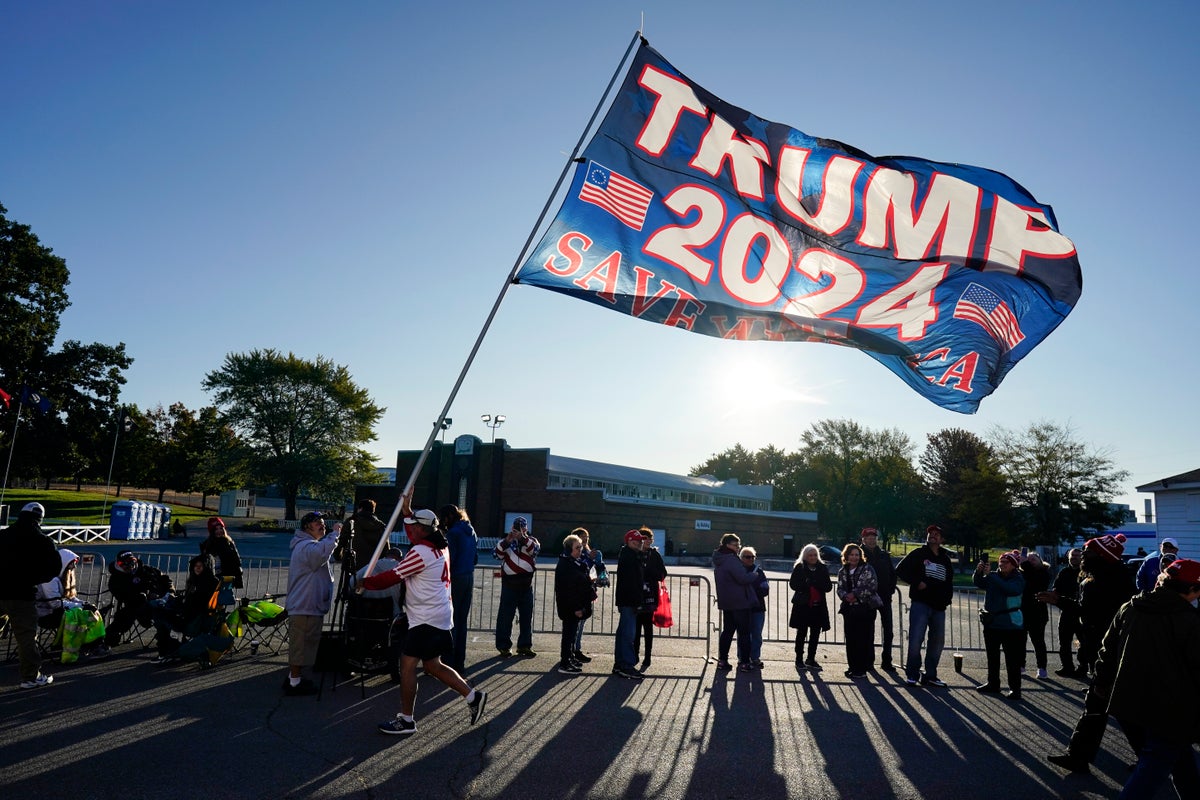
By the time Donald Trump returns to Iowa on Monday, the Republican former president will have drawn more than 10,000 people to his events in the state in less than a month.
There's no guarantee his crowds will translate to support in the state's Jan. 15 caucuses, which will launch the 2024 nominating cycle. But unlike his seat-of-the-pants campaign in 2016, he has a more sophisticated organization to capitalize on his high-wattage events and often emphasizes in his remarks how to participate in the caucuses.
Trump isn’t downplaying expectations that he will win Iowa this time. His advisers want to lock in a blowout that discourages talk of a second-place finisher consolidating support and taking on the former president directly.
A traditional measure of campaign organization in Iowa is the caucus pledge card. People who attend Trump's events are asked to sign a commitment that they will attend the caucuses and support him, providing their contact information so the campaign can inquire about them volunteering and finding others to attend.
After Trump’s second-place 2016 finish behind Sen. Ted Cruz of Texas, a ragtag effort of big crowds but little organization, state GOP staffers cleaned out his caucus campaign office to find thousands of signed pledge cards that had never been logged.
This time, his campaign aims to enter each card into its database within a day and to call each signee within two days. It collected 1,200 cards from two events on Oct. 7 out of about 4,000 people who attended.
“I can promise you there is no backlog," said Alex Latcham, a senior Trump adviser and early-state coordinator.
Trump plans to headline a central Iowa caucus organizing event in booming Dallas County, west of Des Moines, and a speaking event in the city's GOP-leaning western suburbs on Monday.
When he launched his candidacy for president, Trump memorably was unsure what a caucus even is. The quirky contests — more than 1,600 simultaneous, neighborhood-level political meetings at which party members register their presidential preference publicly — are not state-sanctioned primary elections and require intense organization to have supporters in place at each location.
During a campaign stop in Cedar Rapids this month, Trump pivoted from attacking New York Attorney General Letitia James, who is pursuing a civil trial against him, to remind his audience of the fundamentals of participating in the caucuses.
“You have a very big, powerful election coming up. It's called a caucus here,” Trump told about 2,500 inside a hotel ballroom. “And you have to get out at 7 p.m. on Monday, Jan. 15. We're asking you to commit to caucus and bring five or seven or 10 maybe, as many as you can, because we have to win big."
He has netted thousands of commitments. But not every supporter equals a caucus vote.
Rick and Nancy Anderson, of Ottumwa, are devout Trump fans, particularly wed to his ideas on energy and maximizing U.S. oil production.
But asked if they'll caucus for Trump, Rick Anderson said, “Nope. We live in Florida in the winter.”
Florida Gov. Ron DeSantis, one of Trump's main rivals for the 2024 GOP presidential nomination, is betting that despite a sluggish late-summer campaign and organizational shakeup, an all-out focus on Iowa and the potential benefits of reaching every county could allow him to stress more populated counties down the stretch, perhaps trimming Trump's potential margin.
Former U.N. Ambassador Nikki Haley, having sparked renewed interest after two solid GOP presidential debate performances, plans to return to Iowa next week for the fourth time within the past month.
There is little doubt that Trump has the advantage, said David Kochel, who has advised Republican presidential candidates, including their caucus campaigns. But Kochel says Trump also still has something to prove.
"How far apart Trump is from the No. 2 person, assuming Trump wins Iowa, is important, and how far apart the second-place person, assuming it’s not Trump, and the rest of the field is also important," he said. “Those are things we can't know yet.”







